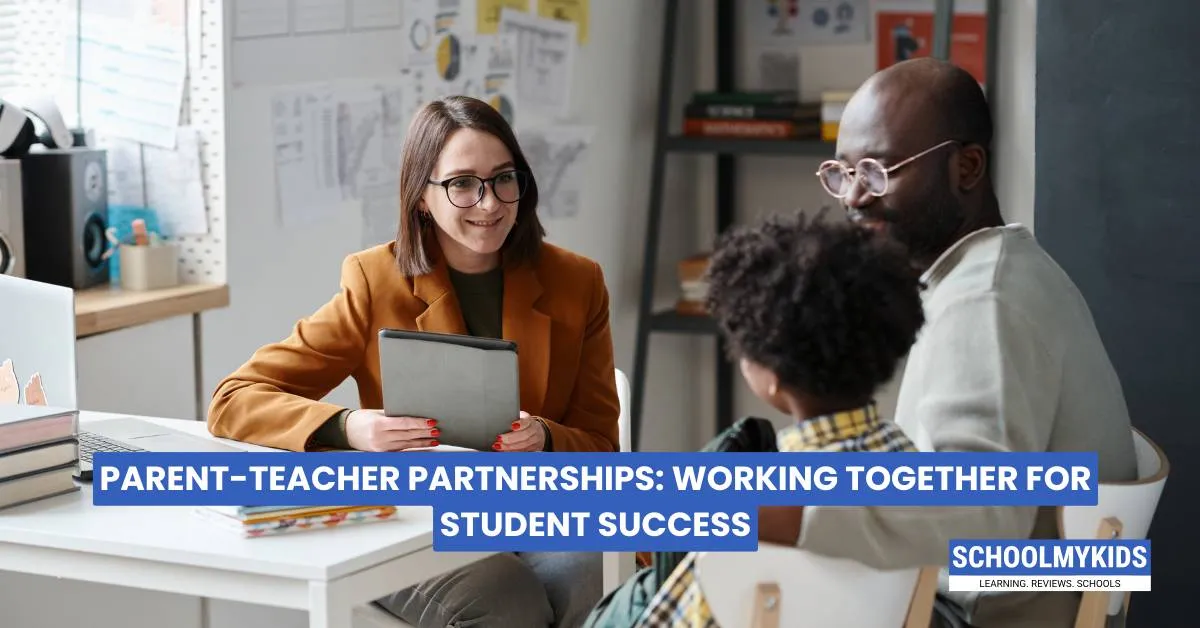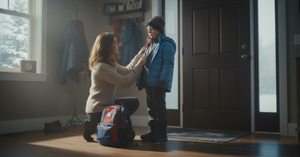Introduction
The image of school success often centers around students—grades, behavior, performance—but what happens behind the scenes is equally crucial. One of the most underappreciated forces driving student achievement is the partnership between parents and teachers. When these two worlds—home and school—work together, they create a support system that amplifies not just academic success, but emotional resilience and confidence.
In today’s fast-paced, tech-driven world, building these partnerships requires intention, open communication, and mutual respect. It’s not just about parent-teacher meetings once a term. It’s about co-creating an environment where students feel seen, supported, and understood.
Why Parent-Teacher Collaboration Matters
A student doesn’t live in two separate bubbles—home and school. Their emotional and cognitive development is continuous, influenced by both spaces. When teachers and parents align in their approach, children:
- Perform better academically
- Show fewer behavioral problems
- Develop stronger emotional intelligence
- Experience increased motivation and self-worth
It’s not about micromanaging a child’s school life. It’s about consistent messages, values, and expectations from both ends.
Building Blocks of an Effective Partnership
1. Open and Respectful Communication
The best partnerships begin with communication that is two-way, honest, and non-defensive. Teachers bring educational expertise, while parents offer insights into the child’s personality, struggles, and home life.
This dialogue shouldn't just happen when something goes wrong. Proactive updates—both formal and informal—help build trust and transparency.
2. Mutual Trust
Trust doesn’t mean always agreeing. It means believing that both sides want what’s best for the student. When parents and teachers trust each other, they’re more willing to share concerns, celebrate wins, and collaborate on solutions.
3. Clarity Around Roles
Parents aren’t expected to become educators. Teachers aren’t expected to parent. But both can work in tandem to support learning, whether it’s through reinforcing routines at home or understanding emotional dynamics in class.
Different Ways Schools Can Encourage Partnerships
1. Interactive Parent-Teacher Conferences
Move beyond generic academic updates. Use conferences to set shared goals, understand student challenges, and brainstorm strategies together.
2. Parent Workshops and Seminars
Schools can offer sessions on topics like digital safety, mental health, learning styles, or even curriculum overviews—empowering parents to engage meaningfully.
3. Digital Portals and Apps
Platforms like ClassDojo, Google Classroom, or even WhatsApp groups (used thoughtfully) allow real-time updates, homework tracking, and feedback sharing without the need for formal meetings.
4. Involving Parents in School Events
Inviting parents to participate in activities—whether it's career days, book readings, or cultural festivals—helps build familiarity and a sense of community.
What Parents Can Do to Strengthen the Partnership
- Stay Engaged, Not Intrusive: Regularly ask your child about school, but don’t push them into constant reporting.
- Support the Teacher’s Efforts at Home: Reinforce routines, respect deadlines, and value learning—not just grades.
- Be Solution-Oriented: When issues arise, approach teachers as allies, not adversaries. Focus on what’s best for the child.
- Share Key Information: Teachers benefit from knowing about significant life changes—like a recent move, illness, or emotional stress—that may affect a student’s behavior.
Common Barriers—and How to Overcome Them
- Time Constraints: Not every parent can attend school events during the day. Schools can offer flexible meeting options (virtual calls, recorded sessions, or after-school hours).
- Language and Cultural Differences: Communication should be inclusive. Translators, visual aids, or multilingual materials help ensure everyone feels heard.
- Mistrust or Past Negative Experiences: Schools must consciously build a culture of empathy and approachability. One positive interaction can rewrite an old narrative.
Conclusion
At its core, education is a team effort. And one of the strongest teams a student can have is a committed parent and a dedicated teacher, working together. This partnership doesn’t need to be perfect—it just needs to be consistent, respectful, and focused on the child’s growth.
Because when parents and teachers come together, the student doesn’t just feel supported—they feel surrounded by belief in their potential.








Be the first one to comment on this story.